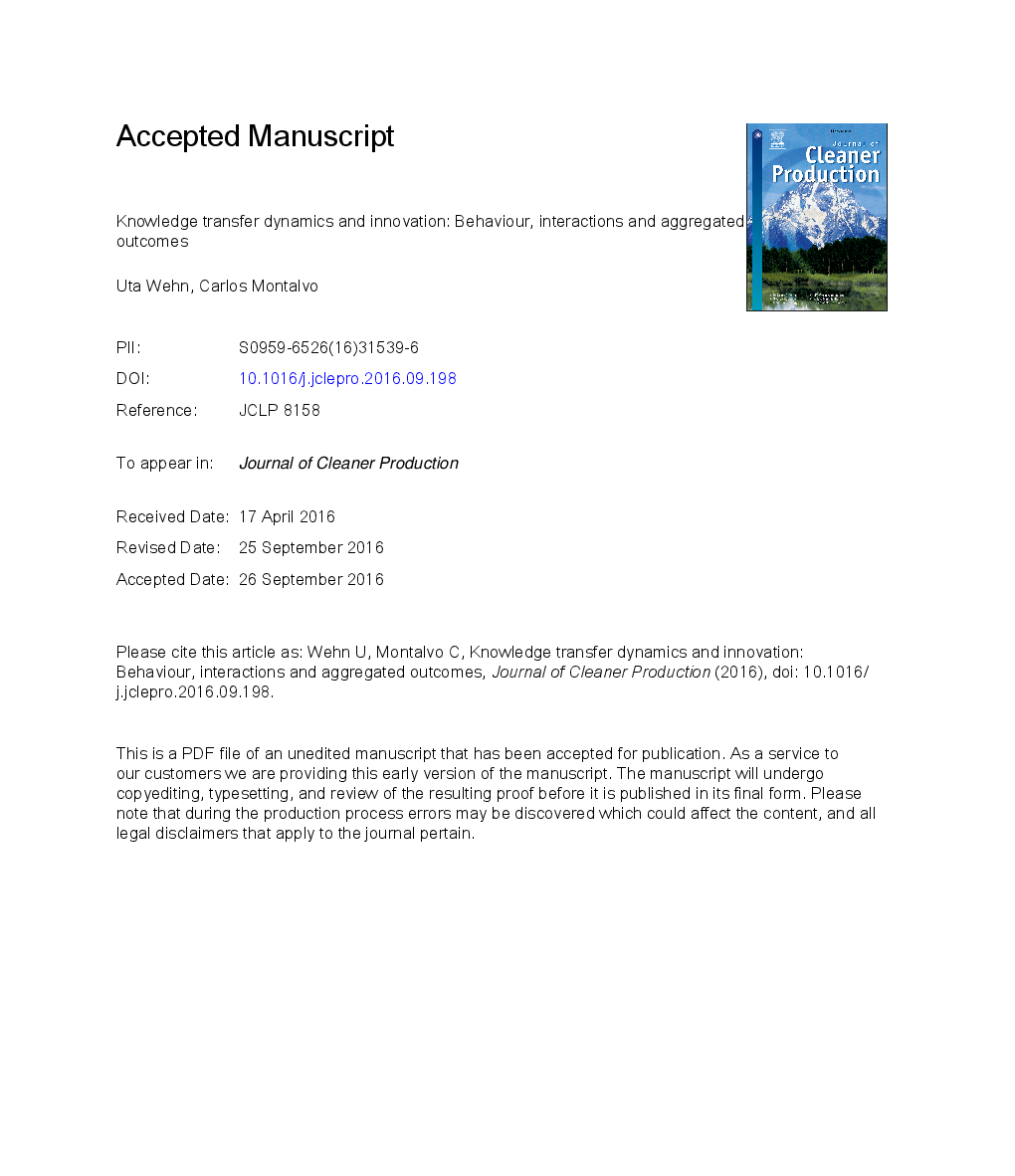ترجمه فارسی عنوان مقاله
دینامیک انتقال دانش و نوآوری: رفتار، تعاملات و نتایج جمعآوری شده
عنوان انگلیسی
Knowledge transfer dynamics and innovation: Behaviour, interactions and aggregated outcomes
| کد مقاله | سال انتشار | تعداد صفحات مقاله انگلیسی |
|---|---|---|
| 155177 | 2018 | 37 صفحه PDF |
منبع

Publisher : Elsevier - Science Direct (الزویر - ساینس دایرکت)
Journal : Journal of Cleaner Production, Volume 171, Supplement, 10 January 2018, Pages S56-S68
ترجمه کلمات کلیدی
سیستم های نوآوری انتقال دانش بین سازمانی، رفتار - اخلاق، انگیزه، فعل و انفعالات، نتایج کلیدی، بخش آب، مشارکت اپراتور آب، نظریه رفتار برنامه ریزی شده،
کلمات کلیدی انگلیسی
Innovation systems; Inter-organisational knowledge transfer; Behaviour; Incentives; Interactions; Aggregated outcomes; Water sector; Water operator partnerships; Theory of planned behaviour;
ترجمه چکیده
تئوری سیستم های نوآوری بر اهمیت مرکزی دانش و انتقال دانش بین بازیگران مختلف یک سیستم نوآوری تاکید می کند، با این وجود هیچ روش متدولوژیکی برای تجزیه و تحلیل سیستماتیک پویایی چنین روابطی وجود ندارد. در این مقاله، ما یک رویکرد چند رشته ای را برای طراحی روانشناسی اجتماعی برای ادغام سیستم های نوآوری و تئوری انتقال دانش پیشنهاد می کنیم. ما تلاش های تجربی را برای اعتبار این رویکرد در بخش آب تمرکز می کنیم. اگرچه مشارکت های اپراتور آب برای به اشتراک گذاشتن بهترین شیوه ها از طریق انتقال دانش مفهوم گشته است، یافته های ما بر اساس شواهد تجربی نشان می دهد نکات روشن از اجماع و همچنین مسائل درگیری در پویایی انتقال دانش بین اپراتورهای آب درگیر در چنین مشارکت. نتایج نشان می دهد که تفاوت های کیفی در اهداف انتقال دانش و همچنین منابع تفاوت ها و عدم تقارن در انگیزه، فشار و قابلیت در روند انتقال دانش.

